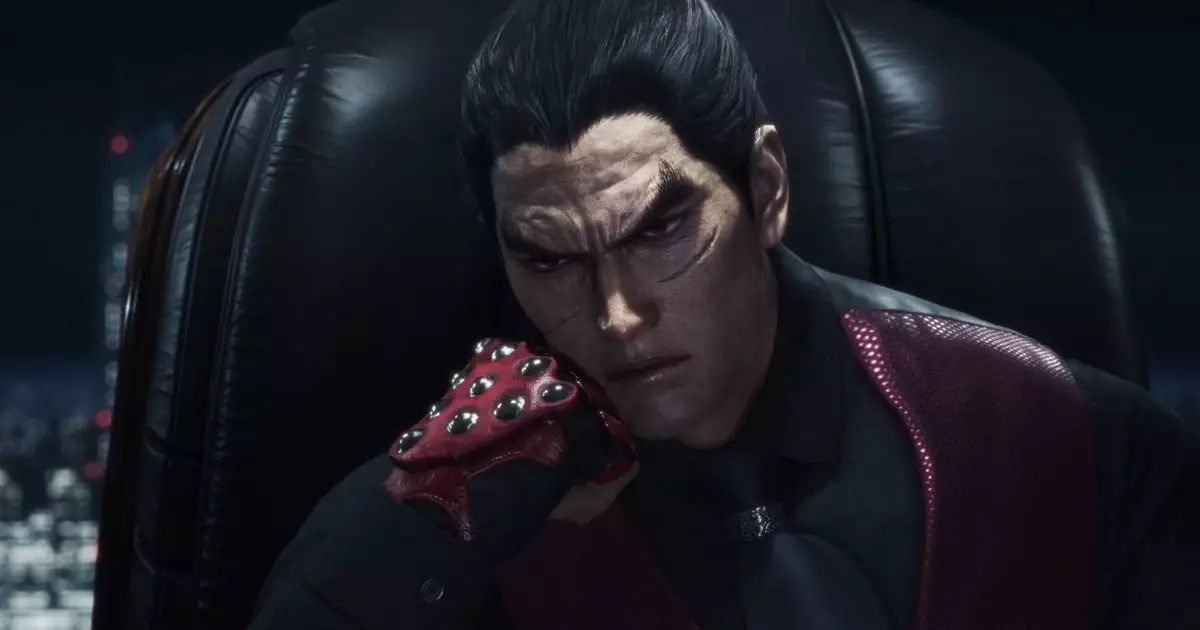In the multifaceted world of video game development, the pressure to deliver excellence is often insurmountable. The story of Katsuhiro Harada, the iconic director of the Tekken series, offers a glimpse into the darker side of creativity. During the launch of Tekken 4 in 2001, Harada faced an avalanche of criticism and disappointment. The game, despite its innovative elements, did not resonate well with players and reviewers alike. Such public scrutiny can be brutal, particularly for someone deeply invested in their creation. Harada openly shared on social media that the stress from this period led to a severe physical reaction—an ominous health condition where he lost all the hair from half of his body, a notably rare yet significant response to emotional turmoil.
The connection between stress and physical health is well-documented, but many still underestimate its severity. When creators experience relentless criticism and internal strife within their teams, the emotional distress can manifest in physical ailments. Harada’s case reveals a raw emotional weight that accompanies the responsibility of maintaining a beloved franchise. This portrayal brings to light the unseen battles developers face, countering the notion that game design is merely about coding and artistic vision.
The Burden of Expectations
As franchises evolve, so do the expectations from fans and critics. The anticipation surrounding a new installment can create a perfect storm of pressure for developers. Harada recalls enduring a year-long hiatus from Namco due to the immense stress following Tekken 4’s lackluster reception. This accounts not only for the challenges of managing large-scale projects but also the psychological aftermath, which can lead to burnout or a desire to escape the relentless demands of the gaming industry.
Interestingly, Harada’s experience hints at a paradox in the gaming community. While nostalgia and appreciation can sometimes retrospectively beautify a game’s legacy, at the moment of release, developers like Harada face a storm of real-time judgments. His poignant observation about how criticism fades while accolades often flourish later, especially after considerable time has passed, showcases a harsh truth about creative endeavors. The industry is rife with stories of creators finding vindication only after stepping away from the chaos and taking a deeper look at their contributions.
A Lesson in Dismissal and Redemption
Harada’s journey illustrates the complex relationship between creation and reception. The phrase “no ally” resonates deeply, emphasizing isolation even amidst collaborative environments. His experience underlines the necessity for supportive structures within industries where creativity and innovation are paramount. The storytelling quality of games like Tekken makes them susceptible to passionate opinions, yet it can also lead to a profound loneliness for those toiling away behind the scenes.
However, with time, the clouds of criticism dissipate, leaving behind a legacy that elicits pride rather than shame. Harada reflects that Tekken 4 remains a personal lesson, a reminder that not all art resonates equally upon release, but all creation can offer invaluable learning experiences. Therein lies a truth that transcends gaming: the road to innovation is fraught with challenges, and resilience is born from hardship.
The Evolution of a Legacy
Fast forward to today, with the upcoming launch of Tekken 8 on the horizon, Harada’s evolution as a director exemplifies resilience. The gaming landscape continues to evolve, yet the core challenges remain intact—from managing expectations to dealing with stress. This newer iteration of Tekken is anticipated to not only contend with the legacy of its predecessors but also integrate fresh storylines and beloved characters—but this time, it comes with the wisdom gleaned from past experiences.
Interestingly, Harada’s attempts to infuse unexpected elements—like Colonel Sanders from KFC into the Tekken universe—reflect a playful creativity that is crucial in reimagining the gaming experience. It speaks volumes about his willingness to experiment, to challenge norms, and to embrace the unexpected in a medium that thrives on innovation.
Through the lens of Harada’s story, we find a powerful narrative about the intricate dance of creativity and pressure. The reality for many creators, particularly in high-stakes environments, is one of continual growth and relentless passion despite the shadows of past battles. In sharing these reflections, Harada not only reinforces the importance of mental health but also champions a dialogue around the human experience underlying the virtual worlds we cherish.


Leave a Reply
You must be logged in to post a comment.